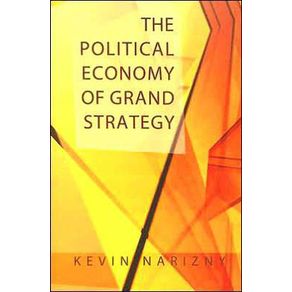A nation's grand strategy rarely serves the best interests of all its citizens. Instead, every strategic choice benefits some domestic groups at the expense of others. When groups with different interests separate into opposing coalitions, societal debates over foreign policy become polarized along party lines. Parties then select leaders who share the priorities of their principal electoral and financial backers. As a result, the overarching goals and guiding principles of grand strategy, as formulated at the highest levels of government, derive from domestic coalitional interests. In The Political Economy of Grand Strategy, Kevin Narizny develops these insights into a comprehensive theoretical framework for understanding the dynamics of security policy. The focus of this analysis is the puzzle of partisanship. The conventional view of grand strategy, in which state leaders act as neutral arbiters of the "national interest," cannot explain why political turnover in the executive office often leads to dramatic shifts in state behavior. Narizny, in contrast, shows how domestic politics structured foreign policymaking in the United States and Great Britain from 1865 to 1941. In so doing, he sheds light on long-standing debates overthe revival of British imperialism, the rise of American expansionism, the creation of the League of Nations, American isolationism in the interwar period, British appeasement in the 1930s, and both countries' decisions to enter World War I and World War II.



